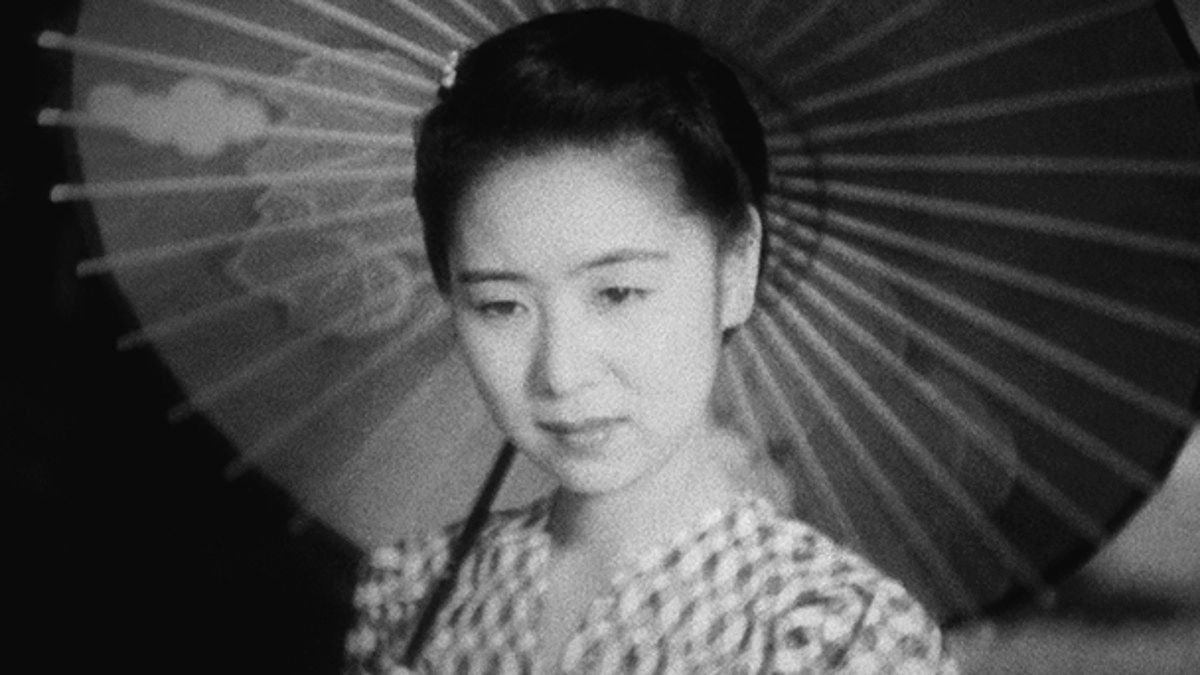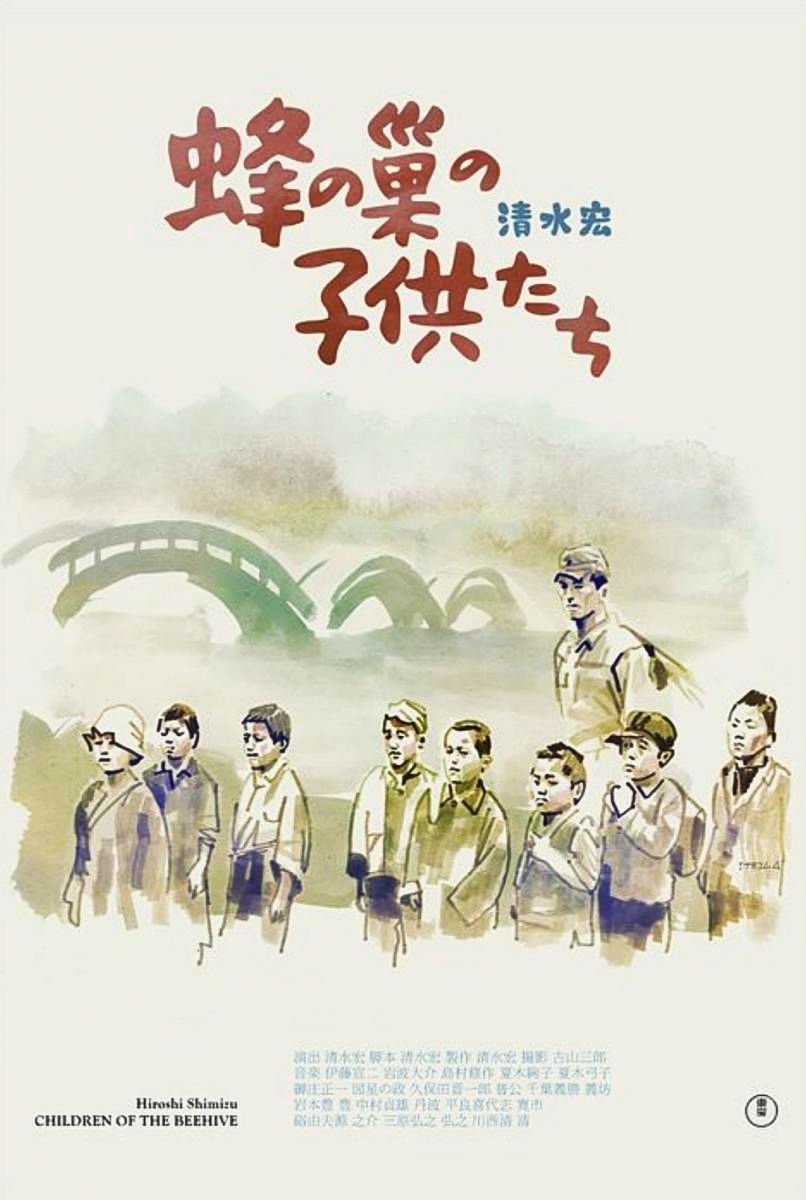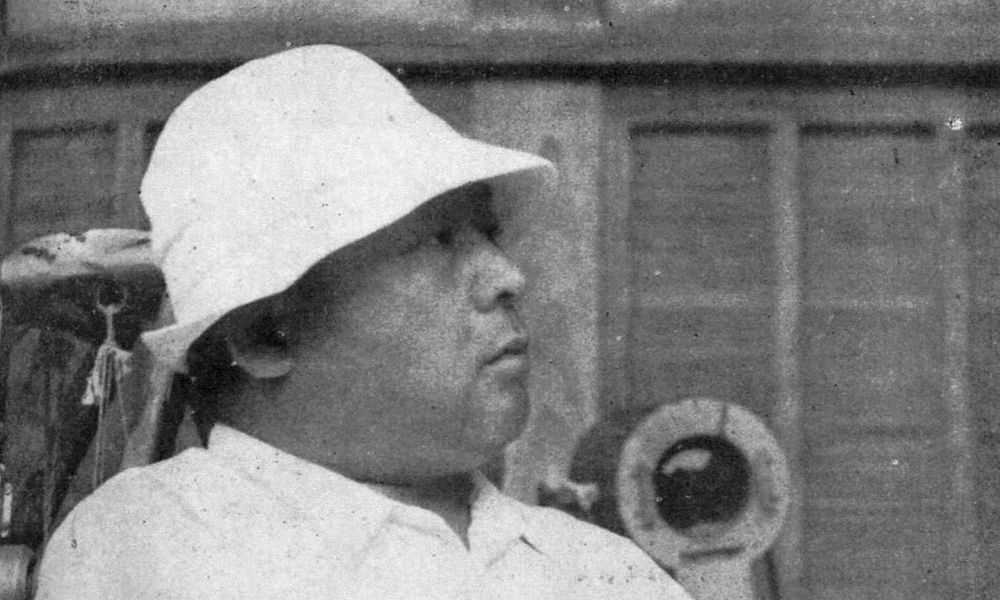"A friend and contemporary at Shochiku of Yasujiro Ozu, Shimizu was one of the Japanese cinema's most individual talents, and seems at last to be receiving due recognition for his subtle, spontaneous technique and for the variety, intelligence, and humanity of his oeuvre… The essence of Shimizu's art was its deceptive simplicity. Few directors have succeeded in combining such lightness of touch with such human depth." - A Critical Handbook of Japanese Film Directors (Alexander Jacoby, 2013)
Hiroshi Shimizu
Director / Screenwriter / Producer
(1903-1966) Born March 28, Shizuoka, Japan
(1903-1966) Born March 28, Shizuoka, Japan
Key Production Country: Japan
Key Genres: Drama, Romance, Comedy
Key Collaborators: Takeshi Sakamoto (Character Actor), Senji Itô (Composer), Shin'ichi Himori (Leading Character Actor), Minoru Esaka (Production Designer), Ureo Egawa (Leading Actor), Tarô Sasaki (Cinematographer), Masao Saito (Cinematographer), Satoko Date (Leading Character Actress), Ken Uehara (Leading Character Actor), Hiroko Kawasaki (Leading Character Actress), Kanji Kawahara (Leading Character Actor), Kenji Ôyama (Character Actor)
Key Genres: Drama, Romance, Comedy
Key Collaborators: Takeshi Sakamoto (Character Actor), Senji Itô (Composer), Shin'ichi Himori (Leading Character Actor), Minoru Esaka (Production Designer), Ureo Egawa (Leading Actor), Tarô Sasaki (Cinematographer), Masao Saito (Cinematographer), Satoko Date (Leading Character Actress), Ken Uehara (Leading Character Actor), Hiroko Kawasaki (Leading Character Actress), Kanji Kawahara (Leading Character Actor), Kenji Ôyama (Character Actor)
"Making his directorial debut in 1924 at the age of 21, Hiroshi Shimizu went on to make over 160 films in a career contemporaneous with widely acknowledged masters Yasujiro Ozu and Kenji Mizoguchi, in whose critical shadows he often, undeservedly, resided… He is also often overtly condemnatory of restrictive social structures and institutional norms. His films repeatedly focus on those excluded from mainstream society – 'fallen women', itinerant workers, those with disabilities or children… Working with a roster of Shochiku’s finest contracted actors, including Kinuyo Tanaka, Shin Saburi and Chishu Ryu, Shimizu created a body of work that deserves to be regarded as among the best cinema of its era." - Melbourne Cinémathèque (ACMI, 2022)
"Of all the directors who made names for themselves during the Japanese studio golden age of the 1930s, Hiroshi Shimizu was one of the most respected—and, today, one of the least well-known. A curious, compassionate storyteller who was fascinated by characters on the outskirts of society, Shimizu used his trademark graceful traveling shot to peek around the corners of contemporary Japan." - The Criterion Collection

Ornamental Hairpin (1941)
"A close friend of and occasional collaborator with Yasujiro Ozu, Shimizu commanded a style as distinctive and almost as idiosyncratic as Ozu’s, though pointed in the opposite direction. Whereas Ozu preferred to work in the studio, and as much as possible within the walls of a modest middle-class home, Shimizu found his inspiration working on location, taking his cast and crew to remote, preferably mountainous corners of Japan… The most distinctive element of his style is his taste for tracking shots that move independently of actors, cutting diagonally across the visual field to reveal new rooms and new spaces." - Dave Kehr (The New York Times, 2009)
"Because of the rediscovery of Shimizu's great silent films of the 1930s, we now do know how much more there was to this singular filmmaker who emerges as an artist of far greater stature than previously acknowledged… The aesthetic peer of his contemporaries, Mizoguchi, Ozu, Gosho, and Naruse, Hiroshi Shimizu in his silent films was a courageous witness to the experiences of his generation, creating works which are surely destined to take their place among the cinema's finest achievements." - William M. Drew (Midnight Eye, 2004)
"The great bulk of his work, 139 titles, falls before 1946. Fewer than two dozen of these seem to survive… Luckily, we’ve wound up with some extraordinary movies, not a clunker among the ones I’ve seen. If only a smattering of 1930s and 1940s titles is available, we should be happy that it was this smattering. Shimizu had concerns in common with Naruse Mikio and Ozu Yasujiro, but he established his own world, a rich tone, and a simple but subtle visual idiom. Along the way, he created some of the most heart-rending films in world cinema." - David Bordwell (David Bordwell's Website on Cinema, 2009)
"The traveling shot is at the heart of Hiroshi Shimizu’s cinema. His camera glides alongside people as they walk, or tracks backward as they advance down a road. Scenes unspool at the pace of strollers and pilgrims, chatting pairs of women, itinerant workers on their way to the next job. These are films about transients and transience, punctuated by soft dissolves and ellipses; sometimes people fade out of the frame like smoke, or vanish and reappear further away. Shimizu’s formalism and his humanism go hand in hand." - Imogen Sara Smith (Reverse Shot, 2024)
"People like me and Ozu get films made by hard work, but Shimizu is a genius." - Kenji Mizoguchi
Selected Filmography
{{row.titlelong}}
Hiroshi Shimizu / Fan Club
B. Kite, Jesús Cortés, Miguel Marías, Rudiger Tomczak, Peter Rist, Sam Wigley, Shinji Somai.
B. Kite, Jesús Cortés, Miguel Marías, Rudiger Tomczak, Peter Rist, Sam Wigley, Shinji Somai.
"Fan Club"
These film critics/filmmakers have, on multiple occasions, selected this director’s work within film ballots/lists that they have submitted.
These film critics/filmmakers have, on multiple occasions, selected this director’s work within film ballots/lists that they have submitted.


